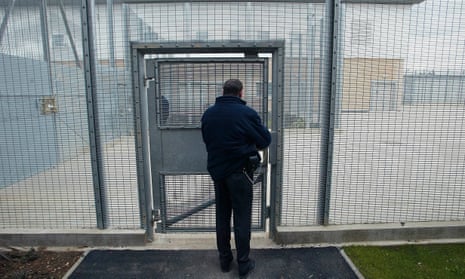At the end of July my organisation, the St Giles Trust, celebrated the success of the world’s first ever Social Impact Bond (Sib), when we announced that our work with 2,000 offenders had yielded a dividend of 3% for investors.
Public services aren’t usually measured this way, but Sibs are a private capital investment model where investors bet on the success of a public service rather than buying shares in a private company. Their money finances a “payment by results” public service commissioned by the government. If the service provider meets its targets the bond’s investors get a dividend.
St Giles Trust’s job was to help tackle stubbornly high re-offending rates among male prisoners in HMP Peterborough serving short sentences. Our activity involved working with them before, during and after release to help with needs such as housing, medical issues and benefits and ultimately move them towards employment. To trigger payment to our funders, we needed to cut re-offending rates by 7.5%. Under that, and funders wouldn’t get their money back. Over that, they would get their capital back, plus interest.
We used our already tested peer advisor model, which trains ex-offenders to become professionally qualified, highly credible paid caseworkers. Market analysts Frontier Economics had evaluated our model and found that it delivered £10 for every £1 invested (pdf) and reduced re-offending rates by an additional 40 percentage points. It seemed a bomb-proof approach to use for a SIB, which hinges on demonstrable results.
In all, 17 social investors supported the bond. Each would receive a payment if there was a reduction in re-conviction events of 7.5% in the 12 months following release. This would be evaluated in three cohorts.
Initially, our small team based themselves out of a local McDonalds as they started to engage with some of the prison leavers who were the most challenging to work with. We were given a list of names of individuals regarded as highly chaotic and frequent offenders.
The project became known as the One Service. It grew and found premises, and other organisations joined. Everyone worked hard to engage with the extremely challenging clients, forging partnerships with local agencies to ensure clients got the necessary support.
Prison leavers weren’t forced to use the service but participation levels were high - 74% for the first cohort of prisoners and 87% for the second.
The service targeted a neglected group of individuals, the most marginalised people in our society, with mental health needs, homelessness and substance misuse issues among the factors involved in their offending. For some, prison appears to offer respite from life outside. Statutory agencies were often unable to reach them, but we could, using our trained, skilled former offenders.
From 2010-2015, the service helped more than 2,000 men leaving prison. Figures on the first cohort, released in 2014, were good at 8.39%. Not enough for an early payout, but we remained confident and our announcement in July bore this confidence out. The service achieved a 9.74% reduction in re-offending. This will not only deliver for benefactors, who will see their initial investment repaid alongside a healthy interest payment, but also for wider society.
Reductions in re-offending save the taxpayer, reduce the number of future crime victims and may persuade the investors to reinvest their capital back into helping make society a better place for us all.
Rob Owen is the chief executive of the St Giles Trust. This is an edited version of an article first published by the charity leaders’ network ACEVO.
Sign up for your free Guardian Public Leaders newsletter with comment and sector views sent direct to you every Thursday. Follow us: @Guardianpublic
Looking for a job in central or local government, or need to recruit public service staff? Take a look at Guardian Jobs.

Comments (…)
Sign in or create your Guardian account to join the discussion